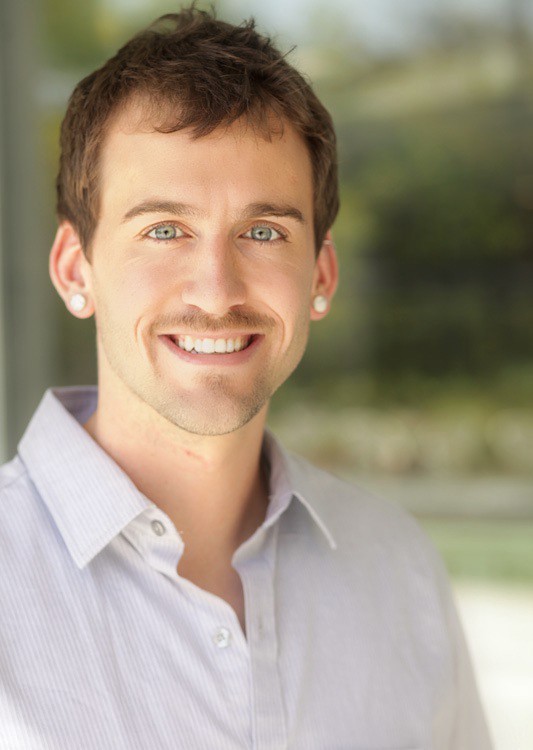USC Graduate Student Turns Filmmaker with Video Addressing Vaccine Myths
SC CTSI-supported TL1 scholar wins two awards in this year's USC Science Filmmaking Competition.
Andrew Woodham is a PhD candidate in the Genetics, Molecular and Cell Biology program at the Norris Comprehensive Cancer Center of the Keck School of Medicine – but he really wants to direct.

And he has. Leading an interdisciplinary team consisting of students and professors, Woodham shot the short film, "Vaccine Voyage: A Truly Viral Video," for this year's USC Science Film Competition. The video won both the Best Animation and the Audience awards in the competition.
Woodham, whose research focuses on human papillomavirus (HPV) and the immune response, wanted to make the video because he was alarmed by persistent but thoroughly discredited theories that suggest vaccines cause autism and other harm.
"Vaccine Voyage" tells the story of a college student worried about getting a vaccine. He goes to his doctor and meets a series of characters, including health care workers, professors, a scientist or two, and some cartoon robots, who explain the science behind vaccines.
Woodham and his video production team, the "Anti-Buddies," (get it?) thought that a film about the facts of vaccines would be appropriate for the competition, which was established to broaden understanding of important scientific concepts and issues.
"Unfortunately, there is still a lot of misinformation about vaccines out there," Woodham said. "This has frightened many parents away from vaccinating their children, and has led to outbreaks of measles and other serious diseases that are completely preventable."
Woodham is also a TL1 scholar in the Education, Career Development, and Ethics (ECDE) program offered through the Southern California Clinical and Science Translational Institute (SC CTSI). The program provides advanced training for PhD students entering careers in health research.
But producing a video takes equipment and knowhow. Seeking help, Woodham brought the video concept to Jon Samet, MD, MS, Director of ECDE. Samet and ECDE Director of Education Cecilia Patino-Sutton, MD, MEd, PhD, saw the potential. They provided the filmmaking team with access to the video studio facility developed by SC CTSI, and the time and expertise of media technology specialist Gary San Angel.
“The SC CTSI played a key role in getting "Vaccine Voyage" made,” said Woodham.
An important part of SC CTSI's mission is to broaden scientific literacy, pointed out Samet. "We want researchers to be adept not just at conducting and interpreting research but also at communicating with both scientific and lay audiences," said Samet. "Film and video are immensely powerful forces for public education, particularly in light of the global reach the Internet now provides for video content."
Some important facts Woodham wants to convey to the vaccine-wary:
- Viruses are simply packages of genetic material, DNA or RNA, surrounded by a protein coating, that bluff their way into healthy cells. They then reprogram the cells to produce more viruses, which go on to infect other healthy cells and cause illness.
- Vaccines are made from the viruses' protein coatings – not their DNA – and thus are incapable of replicating or causing disease. But the vaccines still trigger the immune system to form antibodies that will protect against future infections of the real viruses.
Collaborating on "Vaccine Voyage" as writers, producers and actors were: Lindsey Jones, MLS, USC Dornsife (who happens to be Woodham's fiancée); Thomas Schmidt, PhD candidate, GMCB; Joseph Skeate, Masters degree candidate, Molecular Microbiology and Immunology. Immunology researcher W. Martin Kast, PhD, in whose laboratory Woodham studies, also played a starring role.



